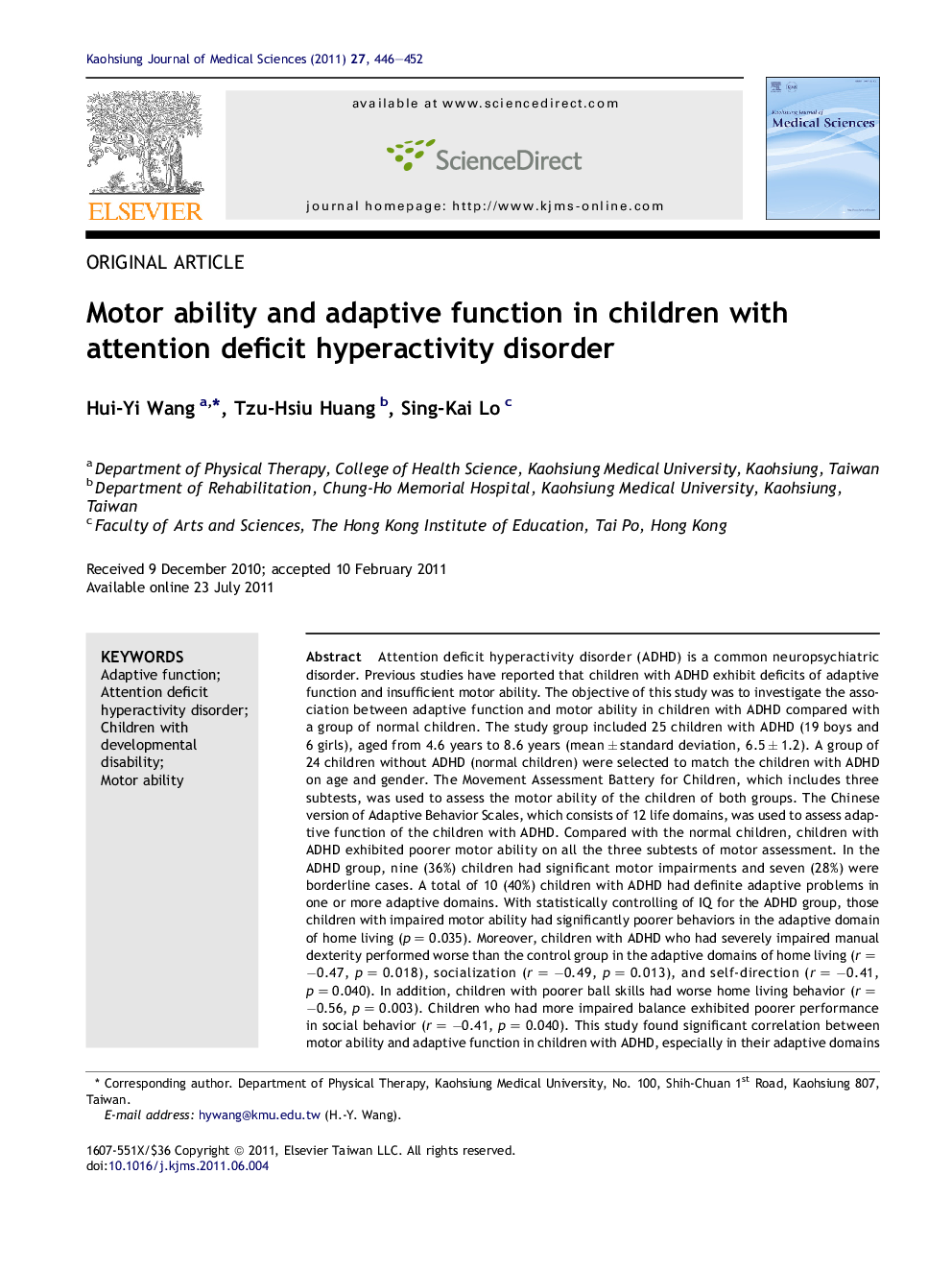| Article ID | Journal | Published Year | Pages | File Type |
|---|---|---|---|---|
| 3486157 | The Kaohsiung Journal of Medical Sciences | 2011 | 7 Pages |
Attention deficit hyperactivity disorder (ADHD) is a common neuropsychiatric disorder. Previous studies have reported that children with ADHD exhibit deficits of adaptive function and insufficient motor ability. The objective of this study was to investigate the association between adaptive function and motor ability in children with ADHD compared with a group of normal children. The study group included 25 children with ADHD (19 boys and 6 girls), aged from 4.6 years to 8.6 years (mean ± standard deviation, 6.5 ± 1.2). A group of 24 children without ADHD (normal children) were selected to match the children with ADHD on age and gender. The Movement Assessment Battery for Children, which includes three subtests, was used to assess the motor ability of the children of both groups. The Chinese version of Adaptive Behavior Scales, which consists of 12 life domains, was used to assess adaptive function of the children with ADHD. Compared with the normal children, children with ADHD exhibited poorer motor ability on all the three subtests of motor assessment. In the ADHD group, nine (36%) children had significant motor impairments and seven (28%) were borderline cases. A total of 10 (40%) children with ADHD had definite adaptive problems in one or more adaptive domains. With statistically controlling of IQ for the ADHD group, those children with impaired motor ability had significantly poorer behaviors in the adaptive domain of home living (p = 0.035). Moreover, children with ADHD who had severely impaired manual dexterity performed worse than the control group in the adaptive domains of home living (r = −0.47, p = 0.018), socialization (r = −0.49, p = 0.013), and self-direction (r = −0.41, p = 0.040). In addition, children with poorer ball skills had worse home living behavior (r = −0.56, p = 0.003). Children who had more impaired balance exhibited poorer performance in social behavior (r = −0.41, p = 0.040). This study found significant correlation between motor ability and adaptive function in children with ADHD, especially in their adaptive domains of home living, socialization, and self-direction. In clinical settings, identification of motor difficulties may have important implications for the understanding of relative factors in effective management of the adaptive dysfunction in children with ADHD.
